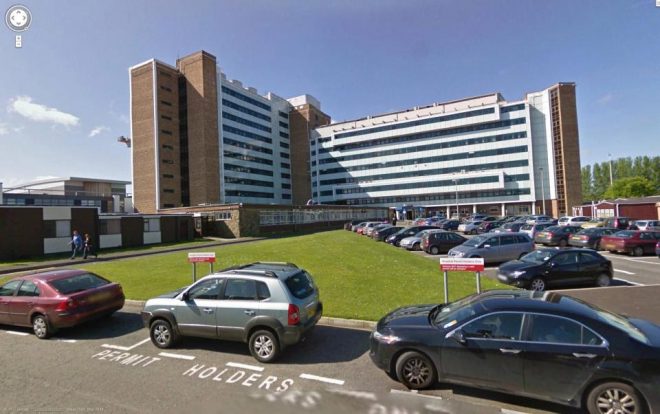 IT has emerged that a nurse working in a neonatal unit previously caught up in a deadly pseudomonas outbreak did not follow infection control policies.
IT has emerged that a nurse working in a neonatal unit previously caught up in a deadly pseudomonas outbreak did not follow infection control policies.
Erlisa Bautista was working at the neonatal unit at Altnagelvin Area Hospital in 2014 – less than three years after a baby died at the hospital during an outbreak of the superbug.
The Nursing and Midwifery Council (NMC) found that Ms Bautista failed to follow a series of procedures aimed at protecting the safety of the babies on the unit.
However, the regulatory body also found Ms Bautista, who did not ordinarily work on the ward, was not provided with adequate training or supervision.
SDLP Health spokesman Mark H Durkan said he was concerned at the findings of the NMC fitness to practice panel, which he said highlighted the pressures facing nurses as hospitals struggle to staff wards.
“The details from this hearing are extremely concerning because we are hearing more and more about nursing shortages and nurses having to constantly move wards to fill vacancies,” said the Foyle MLA.
“In this case, lives of extremely ill and vulnerable babies have been put at risk and it’s not good enough.
“It is essential that our nurses are adequately experienced, trained and supervised to ensure things like this don’t happen.”
Ms Bautista was working in the neonatal unit at Altnagelvin between May and July 2014 when concerns were raised about her infection control techniques.
She was also accused of failing to follow the correct procedures when tube-feeding a baby.
Allegations against her, which were found proved by the NMC fitness to practice committee, included re-sheathing a needle after use, touching a sterile trolley with her bare hands, and not taking off her apron after changing a baby’s nappy and before washing her hands.
The NMC panel ruled Ms Bautista’s actions “fell significantly short of the standards expected of a registered nurse”.
When deciding whether this amounted to misconduct, the panel “bore in mind that infection control was stressed as being of the utmost importance in the hospital and on the unit in 2014, given the previous regional outbreak of pseudomonas in 2012, prior to you working on the unit.”
 The NMC document continued: “Furthermore, the babies in the unit were highly vulnerable.
The NMC document continued: “Furthermore, the babies in the unit were highly vulnerable.
“The panel also had regard to the fact that your actions and omissions occurred over a six-week period of time, and had the potential to result in harm to babies, for example if any crosscontamination materialised as a result of poor infection control.”
Despite this, the panel opted against finding Ms Bautista guilty of misconduct in relation to her failings regarding infection control.
This was because she was new to the unit, having previously worked on a paediatric ward in the hospital for a long period, and the induction and supervision she received in the neonatal unit “was not particularly thorough”.
However, the panel did find her guilty of misconduct as she did not carry out basic and routine safety checks prior to feeding a baby in the unit, as she had “placed the baby at risk of harm”.
The panel went on to find her fitness to practise impaired and issued a caution order for three years.
A spokeswoman from the Western Trust said the trust does not comment on individual employment matters.
Pseudomonas is a germ that thrives in moist conditions and can be found in most households.
It is harmless to most people but can be deadly to people whose immune system is suppressed, such as premature babies.
Caolan Campbell was just 10 days old when he died in Altnagelvin in December 2011, just weeks before three babies died from a different strain of the pseudomonas bacteria at the Royal Jubilee Maternity Hospital. Other babies at Antrim Area Hospital were also found to be carrying the bug.
Health officials implemented a range of measures at hospitals across the North of Ireland in a bid to reduce the risk of any further outbreaks of the superbug.
Tags:




